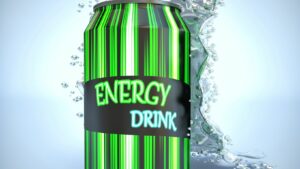ADHD and Energy Drinks
- ADHD Overview: ADHD is a neurodevelopmental disorder characterized by inattention, hyperactivity, and impulsivity, impacting daily functioning and mental health.
- Energy Drink Popularity: The rise of energy drinks, especially among teens and young adults, raises concerns about their effects on ADHD symptoms and overall health.
- Ingredient Awareness: Key ingredients in energy drinks, such as caffeine, sugar, and other stimulants, can exacerbate ADHD symptoms, leading to increased anxiety, irritability, and mood swings.

- Research Insights: Studies indicate that energy drinks may impair cognitive performance and worsen ADHD symptoms rather than provide beneficial effects, contradicting common beliefs about their use.
- Mental and Physical Risks: Energy drinks can negatively impact both mental and physical health for individuals with ADHD, leading to potential long-term health complications and decreased medication effectiveness.
- Informed Decision-Making: Understanding the risks associated with energy drink consumption is crucial for individuals with ADHD to make informed choices about managing their energy levels.
For many individuals with ADHD, managing energy levels can be a daily challenge. With the increasing popularity of energy drinks, questions arise about their effects on those with attention deficit hyperactivity disorder. These beverages, often loaded with caffeine and sugar, promise a quick boost but may come with unintended consequences.
Research suggests that the stimulating ingredients in energy drinks can impact focus and behavior, potentially exacerbating symptoms of ADHD. As more people turn to these drinks for a pick-me-up, understanding their implications becomes crucial. This article delves into the relationship between ADHD and energy drinks, exploring both the potential benefits and risks involved.
Understanding ADHD
ADHD, or Attention-Deficit/Hyperactivity Disorder, is a neurodevelopmental disorder affecting both children and adults. This condition impacts focus, self-control, and the ability to regulate energy levels.
Definition of ADHD
ADHD involves persistent patterns of inattention, hyperactivity, and impulsivity. These symptoms impair daily functioning and development. The symptoms manifest differently in various age groups; for example, hyperactivity may lessen in adulthood, while inattention often persists.
Symptoms and Challenges
Common symptoms include:
- Inattention: Difficulty sustaining attention in tasks or activities, leading to careless mistakes.
- Hyperactivity: Excessive fidgeting, talking, or inability to stay seated in situations where it’s expected.
- Impulsivity: Acting without thinking, interrupting others, or difficulty waiting for one’s turn.
Challenges faced by individuals with ADHD can be significant. They often struggle with time management, organization, and maintaining relationships. These challenges may contribute to low self-esteem and higher risks of anxiety and depression. Understanding these aspects helps in recognizing the potential effects of energy drinks on this population.
The Rise of Energy Drinks
Energy drinks have gained significant traction in recent years, particularly among younger demographics, who seek quick and effective energy solutions. This surge in popularity raises important questions about consumption patterns and health implications, especially for individuals with ADHD.
Popularity Among Teens and Young Adults
Teens and young adults show a high preference for energy drinks, with approximately 30% of high school students reporting regular consumption. Factors driving this trend include peer pressure, increased academic demands, and the belief that these beverages enhance focus and stamina. The marketing strategies of energy drink brands actively target this demographic, using social media and sponsorships to appeal to their lifestyle. Despite the appealing attributes, the effects of these drinks on ADHD symptoms require careful consideration.
Common Ingredients in Energy Drinks
Energy drinks typically contain several key ingredients, including:
- Caffeine: Often present in amounts ranging from 80 mg to 500 mg per serving, caffeine stimulates the central nervous system. Higher levels can lead to increased anxiety or irritability, especially for those with ADHD.
- Sugar: Many energy drinks have high sugar content, often exceeding 30 grams per serving. This can cause rapid spikes in energy, followed by crashes that affect mood and concentration.
- Taurine: This amino acid appears in many formulations and is thought to enhance athletic performance. Its long-term effects on those with ADHD remain unclear.
- B-Vitamins: Commonly included for their role in energy metabolism, these vitamins may contribute positively, though excessive amounts can lead to adverse effects.
- Other Stimulants: Ingredients like guarana and ginseng may exacerbate ADHD symptoms due to their stimulating effects.
Understanding these ingredients helps clarify the potential risks and benefits of energy drink consumption for individuals with ADHD.
The Link Between ADHD and Energy Drinks
Research indicates a complex relationship between ADHD and energy drinks. Individuals with ADHD often seek quick energy boosts, but the effects of these stimulants can exacerbate their symptoms.
Research Findings
Studies show caffeine may intensify ADHD symptoms rather than alleviate them. A 2018 review in Psychiatry Research found that higher caffeine intake correlated with increased anxiety and hyperactivity in individuals diagnosed with ADHD. Research published in Journal of Attention Disorders in 2020 highlighted that energy drinks could lead to poorer cognitive performance in those with ADHD by impairing attention and focus, thus challenging the belief that these beverages enhance cognitive abilities.
Potential Effects on Individuals with ADHD
Energy drinks can have several negative effects on individuals with ADHD. Those consuming high-caffeine products may experience heightened anxiety, irritability, or restlessness. Energy spikes from sugar can lead to energy crashes, causing mood swings that further complicate daily life. Stimulant interactions in energy drinks can disrupt sleep patterns, leaving individuals fatigued and less able to manage their ADHD symptoms. Long-term reliance on energy drinks for concentration may lead to reduced effectiveness of ADHD medications as well.
Risks and Considerations
Energy drinks pose several significant risks for individuals with ADHD, particularly regarding their mental and physical health. Understanding these risks is crucial for informed decision-making.
Impact on Mental Health
Energy drinks can exacerbate mental health challenges for individuals with ADHD. High caffeine levels often lead to increased anxiety, irritability, and mood swings. Studies indicate that caffeine may heighten hyperactivity in this population, contradicting the belief that it improves focus. Additionally, energy drinks may disrupt sleep patterns, which further compromises mental health by contributing to fatigue and diminished cognitive function. Chronic sleep disturbance can increase impulsivity and reduce emotional regulation, worsening existing ADHD symptoms.
Physical Health Concerns
 Energy drinks carry multiple physical health risks, especially for individuals with ADHD. High caffeine consumption can lead to cardiovascular issues, including elevated heart rate and hypertension. Sugary ingredients contribute to weight gain, increasing the risk of obesity and related health problems. Furthermore, excessive intake of stimulants from energy drinks may lead to gastrointestinal distress, dehydration, and headaches. Over time, these risks can compound, affecting overall physical well-being and hindering the effectiveness of ADHD medications.
Energy drinks carry multiple physical health risks, especially for individuals with ADHD. High caffeine consumption can lead to cardiovascular issues, including elevated heart rate and hypertension. Sugary ingredients contribute to weight gain, increasing the risk of obesity and related health problems. Furthermore, excessive intake of stimulants from energy drinks may lead to gastrointestinal distress, dehydration, and headaches. Over time, these risks can compound, affecting overall physical well-being and hindering the effectiveness of ADHD medications.
Make Informed Choices
Navigating the world of energy drinks can be particularly challenging for individuals with ADHD. While these beverages may seem like a quick fix for low energy and focus, their potential to exacerbate symptoms and impact overall health is significant. Increased anxiety irritability and disrupted sleep can complicate daily functioning and hinder the effectiveness of ADHD treatments.
Awareness of these risks is essential for making informed choices. By understanding the effects of energy drinks, individuals with ADHD can better manage their energy levels and prioritize their well-being. It’s crucial to explore healthier alternatives and seek professional guidance when necessary to ensure a balanced approach to energy management.


